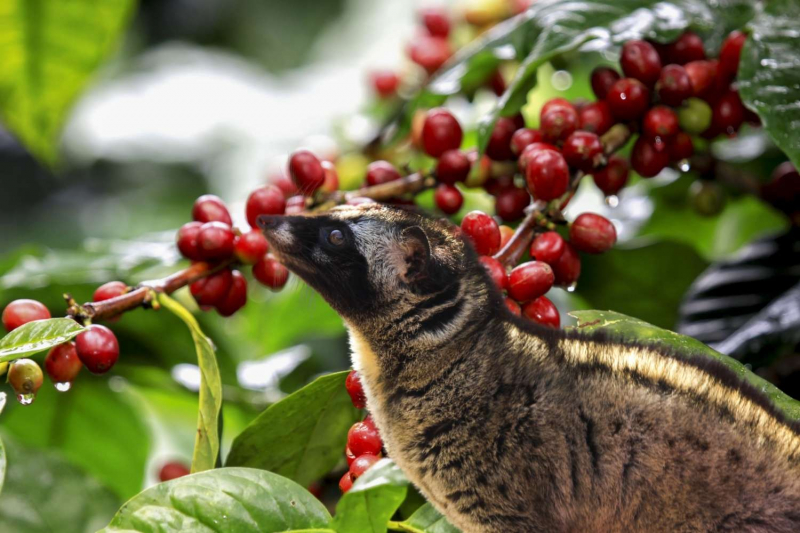Coffee beans pooped out by cats are the most expensive type of coffee
This might sound unbelievable and kind of gross, but coffee beans pooped out by cats are a thing, and it is in fact the most exclusive and expensive coffee in the world. This type of coffee is called "Kopi Luwak", and one kilogram of it can cause you up to US $1300.
The people in Indonesia on the islands of Java, Bali, and Sumatra, and some other South East Asian countries like Vietnam has been making Kopi Luwak for a long time. After finding out that the coffee fermented by the digestion of a type of wild cat named palm civet tasted exceptionally good, the people in these areas started to let the cats eat their coffee beans. They then use their poop which is coffee beans pooped out whole, to make coffee that is now the most expensive type of coffee in the world. If you worry that Kopi Luwak is not clean, remember that the outer layer of the coffee bean is removed during processing and the remaining beans are completely cleaned before being roasted and sent to you!
The taste of Kopi Luwak is noticeably not bitter and is intensely aromatic. It has a complex flavor profile that is smooth, earthy, and sweet with a hint of chocolate. Aside from the great taste, the uncommon method of production and the limited availability makes Kopi Luwak extremely expensive. However, due to the popularity of Kopi Luwak, several plantations farm have been raising palm civet cats, sometimes in deplorable conditions, to produce Kopi Luwak. This is a highly inhumane process that's not only unacceptable but also inefficient because the civets' digestive system is usually wrecked from being forced to have an unbalanced diet.
















